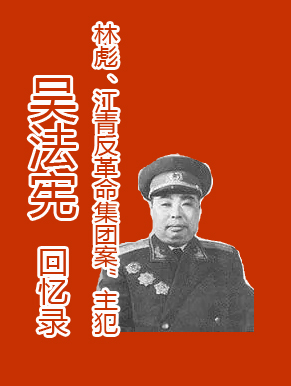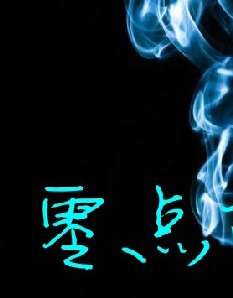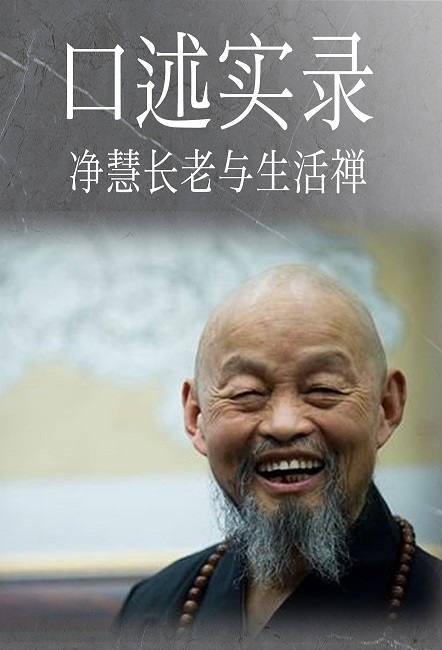Although he did not suspect the fact, the mayor of M. sur M. Enjoyed a sort of celebrity. For the space of seven years his reputation for virtue had filled the whole of Bas Boulonnais; it had eventually passed the confines of a small district and had been spread abroad through two or three neighboring departments. Besides the service which he had rendered to the chief town by resuscitating the black jet industry, there was not one out of the hundred and forty communes of the arrondissement of M. sur M. which was not indebted to him for some benefit. He had even at need contrived to aid and multiply the industries of other arrondissements. It was thus that he had, when occasion offered, supported with his credit and his funds the linen factory at Boulogne, the flax-spinning industry at Frevent, and the hydraulic manufacture of cloth at Boubers-sur-Canche. Everywhere the name of M. Madeleine was pronounced with veneration. Arras and Douai envied the happy little town of M. sur M. its mayor.
The Councillor of the Royal Court of Douai, who was presiding over this session of the Assizes at Arras, was acquainted, in common with the rest of the world, with this name which was so profoundly and universally honored. When the usher, discreetly opening the door which connected the council-chamber with the court-room, bent over the back of the President's arm-chair and handed him the paper on which was inscribed the line which we have just perused, adding: "The gentleman desires to be present at the trial," the President, with a quick and deferential movement, seized a pen and wrote a few words at the bottom of the paper and returned it to the usher, saying, "Admit him."
The unhappy man whose history we are relating had remained near the door of the hall, in the same place and the same attitude in which the usher had left him. In the midst of his revery he heard some one saying to him, "Will Monsieur do me the honor to follow me?" It was the same usher who had turned his back upon him but a moment previously, and who was now bowing to the earth before him. At the same time, the usher handed him the paper. He unfolded it, and as he chanced to be near the light, he could read it.
"The President of the Court of Assizes presents his respects to M. Madeleine."
He crushed the paper in his hand as though those words contained for him a strange and bitter aftertaste.
He followed the usher.
A few minutes later he found himself alone in a sort of wainscoted cabinet of severe aspect, lighted by two wax candles, placed upon a table with a green cloth. The last words of the usher who had just quitted him still rang in his ears: "Monsieur, you are now in the council-chamber; you have only to turn the copper handle of yonder door, and you will find yourself in the court-room, behind the President's chair." These words were mingled in his thoughts with a vague memory of narrow corridors and dark staircases which he had recently traversed.
The usher had left him alone. The supreme moment had arrived. He sought to collect his faculties, but could not. It is chiefly at the moment when there is the greatest need for attaching them to the painful realities of life, that the threads of thought snap within the brain. He was in the very place where the judges deliberated and condemned. With stupid tranquillity he surveyed this peaceful and terrible apartment, where so many lives had been broken, which was soon to ring with his name, and which his fate was at that moment traversing. He stared at the wall, then he looked at himself, wondering that it should be that chamber and that it should be he.
He had eaten nothing for four and twenty hours; he was worn out by the jolts of the cart, but he was not conscious of it. It seemed to him that he felt nothing.
He approached a black frame which was suspended on the wall, and which contained, under glass, an ancient autograph letter of Jean Nicolas Pache, mayor of Paris and minister, and dated, through an error, no doubt, the 9th of June, of the year II., and in which Pache forwarded to the commune the list of ministers and deputies held in arrest by them. Any spectator who had chanced to see him at that moment, and who had watched him, would have imagined, doubtless, that this letter struck him as very curious, for he did not take his eyes from it, and he read it two or three times. He read it without paying any attention to it, and unconsciously. He was thinking of Fantine and Cosette.
As he dreamed, he turned round, and his eyes fell upon the brass knob of the door which separated him from the Court of Assizes. He had almost forgotten that door. His glance, calm at first, paused there, remained fixed on that brass handle, then grew terrified, and little by little became impregnated with fear. Beads of perspiration burst forth among his hair and trickled down upon his temples.
At a certain moment he made that indescribable gesture of a sort of authority mingled with rebellion, which is intended to convey, and which does so well convey, "Pardieu! who compels me to this?" Then he wheeled briskly round, caught sight of the door through which he had entered in front of him, went to it, opened it, and passed out. He was no longer in that chamber; he was outside in a corridor, a long, narrow corridor, broken by steps and gratings, making all sorts of angles, lighted here and there by lanterns similar to the night taper of invalids, the corridor through which he had approached. He breathed, he listened; not a sound in front, not a sound behind him, and he fled as though pursued.
When he had turned many angles in this corridor, he still listened. The same silence reigned, and there was the same darkness around him. He was out of breath; he staggered; he leaned against the wall. The stone was cold; the perspiration lay ice-cold on his brow; he straightened himself up with a shiver.
Then, there alone in the darkness, trembling with cold and with something else, too, perchance, he meditated.
He had meditated all night long; he had meditated all the day: he heard within him but one voice, which said, "Alas!"
A quarter of an hour passed thus. At length he bowed his head, sighed with agony, dropped his arms, and retraced his steps. He walked slowly, and as though crushed. It seemed as though some one had overtaken him in his flight and was leading him back.
He re-entered the council-chamber. The first thing he caught sight of was the knob of the door. This knob, which was round and of polished brass, shone like a terrible star for him. He gazed at it as a lamb might gaze into the eye of a tiger.
He could not take his eyes from it. From time to time he advanced a step and approached the door.
Had he listened, he would have heard the sound of the adjoining hall like a sort of confused murmur; but he did not listen, and he did not hear.
Suddenly, without himself knowing how it happened, he found himself near the door; he grasped the knob convulsively; the door opened.
He was in the court-room.
滨海蒙特勒伊市长素有声望,那是他自己不曾想到的。七年来,他的名声早已传遍了下布洛涅,后来更超越了这小小地区,传到邻近的两三个省去。他除了在城内起了振兴烧料细工工业的重大作用外,在滨海蒙特勒伊县的一百八十一个镇中,没有一镇不曾受过他的照顾。在必要时,他还能帮助和发展其他县的工业。他以他的信用贷款和基金在情况需要时随时支援过布洛涅的珍珠罗厂、弗雷旺的铁机麻纱厂和匍白的水力织布厂。无论什么地方,提到马德兰先生这个名字,大家总是肃然起敬的。阿拉斯和杜埃都羡慕滨海蒙特勒伊有这样一位市长,说这是个幸运的小城。
这次在阿拉斯任刑庭主席的是杜埃的御前参赞,他和旁人一样,也知道这个无处不尊、无人不敬的名字。执达吏轻轻开了从会议室通到公堂的门,在庭长的围椅后面伛着腰,递上我们刚才念过的那张纸说“这位先生要求旁听”,庭长肃然动容,拿起一支笔,在那张纸的下端写了几个字,交给执达吏,向他说:
“请进。”
我们讲着他的历史的这个伤心人立在大厅门旁,他立的地位和态度,一直和那执达吏先头离开他时一样。他在梦魂萦绕中听到一个人向他说:“先生肯赏光让我带路吗?”这正是刚才把背向着他的那个执达吏,现在向他鞠躬直达地面了。执达吏又同时把那张纸递给他。他把它展开,当时他恰立在灯旁,他读道:
“刑庭庭长谨向马德兰先生致敬。”
他揉着这张纸,仿佛这几个字给了他一种奇苦的余味。
他跟着执达吏走去。
几分钟后,他走进一间会议室,独自立在里面,四壁装饰辉煌,气象森严,一张绿呢台子上燃着两支烛。执达吏在最后离开他时所说的那些话还一直留在他的耳边:“先生,您现在是在会议室里,您只须转动这门上的铜钮,您就到了公堂里,庭长先生的围椅后面。”这些话和他刚才穿过的那些狭窄回廊以及黑暗扶梯所留下的回忆,在他的思想里都混在一起了。
执达吏把他独自留下。紧急关头到了。他想集中精神想想,但是做不到。尤其是在我们急于想把思想里的线索和痛心的现实生活联系起来时,它们偏会在我们的脑子里断裂。他恰巧到了这些审判官平时商议和下判决书的地方。他静静地呆望着这间寂静骇人的屋子,想到几多生命是在这里断送的,他自己的名字不久也将从这里轰传开去,他这会儿也要在这里过关,他望望墙壁,又望望自己,感到惊奇,居然会有这间屋子,又会有他这个人。
他不吃东西,已超过了二十四个钟头,车子的颠簸已使他疲惫不堪,不过他并不觉得,好象他什么事都已感觉不到。
他走近挂在墙上的一个黑镜框,镜框的玻璃后面有一封陈旧的信,是巴黎市长兼部长让·尼古拉·帕希亲笔写的,信上的日期是二年①六月九日,这日期一定是写错了的,在这封信里,帕希把他们拘禁的部长和议员的名单通告了这一镇。假使有人能在这时看见并注意马德兰,一定会认为这封信使马德兰特别感兴趣,因为他的眼睛没有离开它,并且念了两三遍。他自己没有注意到也没有觉得他是在念这封信。他当时想到的却是芳汀和珂赛特。
①共和二年,即一七九四年。
他一面沉思一面转过身子,他的视线触到了门上的铜钮,门那边便是刑庭了。他起先几乎忘记了这扇门。他的目光,起初平静地落到门上,随后便盯住那铜钮,他感到惊愕,静静地望着,渐渐起了恐怖。一滴滴汗珠从他头发里流出来,直流到鬓边。
有那么一会儿,他用一种严肃而又含有顽抗意味的神情作出一种无法形容的姿势,意思就是说(并且说得那样正确):“见鬼!谁逼着我不成?”他随即一下转过身去,看见他先前进来的那扇门正在他面前,他走去开了门,一步就跨出去了。他已不在屋子里了,他到了外面,在一道回廊里;这是一道长而狭的回廊,许多台阶,几个小窗口,弯弯曲曲,一路上点着几盏类似病房里通宵点着的回光灯,这正是他来时经过的那条回廊。他吐了一口气,又仔细听了一阵,他背后没有动静,他前面也没有动静,他开始溜走,象有人追他似的。
他溜过了长廊的几处弯角,又停下来听。在他四周,仍和刚才那样寂静,那样昏暗。他呼吸促迫,站立不稳,连忙靠在墙上。石块是冷的,他额上的汗也象冰似的,他把身子站直,一面却打着寒战。
他独自一人立在那里,立在黑暗中,感到冷不可耐,也许还因别的事而浑身战栗,他又寻思起来。
他已想了一整夜,他已想了一整天,他仅听见一个声音在他心里说:“唉!”
这样过了一刻钟。结果,他低下头,悲伤地叹着气,垂着两只手,又走回来。他慢慢地走着,不胜负荷似的。好象有人在他潜逃的时候追上了他,硬把他拖回来一样。
他又走进那间会议室。他看见的第一件东西便是门钮。门钮形状浑圆,铜质光滑,在他眼前闪闪发光,好象一颗骇人的星。他望着它,如同羔羊见了猛虎的眼睛。
他的眼睛无法离开它。
他一步一停,向着门走去。
假使他听,他会听见隔壁厅里的声音,象一种嘈杂的低语声。但是他没有听,也听不见。
忽然,连他自己也不知道他是怎样到了门边。他紧张万分地握住那门钮,门开了。
他已到了公堂里面。







